Bethan Elfyn is a Welsh broadcaster who has been an influential supporter and advocate for Welsh music for more than two decades. She currently presents the Saturday evening show BBC Radio Wales, plus her own show on Amazing Radio and oversees the Horizons/Gorwelion programme supporting new and emerging musicians from across Wales.
Thanks for talking to us Bethan – by way of an obvious opening question, what was the first album and single you bought?
Apart from ‘Now’ pop compilations, Woolworth bargain bin purchases, and free magazine compilation cassettes, I can’t remember much about ‘buying’ and collecting music until my first proper independent purchase from Rainbow Records in Newtown, in Mid Wales, which was Teenage Fanclub’s Bandwagonesque (1991). This was a proud purchase, as was everything that followed in this era Screamadelica (Primal Scream), Leisure (Blur) and Spooky (Lush) What an era for music – and all influenced by late night radio listening!
Alongside the purchases, there was also something else that had a profound effect. I then went to camp at my first Eisteddfod in Aberystwyth in 1992, and saw the Welsh language music scene at first hand during a few days there! The ‘rock’ tent on the main festival field had new bands playing all day, and gigs around the area in the evening by more established acts (bands like Ffa Coffi Pawb (early SFA), Hanner Pei, Beganifs, Jess, Dom, Tynnal Tywyll, Y Cyrff) and I also met Gorky’s although they hadn’t formed the band then, they were just hanging around at the gigs like I was. It was a taste of an alternative musical universe that mirrored the music scene from the UK, but this felt special and just for us with a politicised ecosystem for and from Welsh speakers – for a minority language it was a pretty big subculture. This was a pretty special discovery!
This experience was partly behind some of the reasons for then going to Cardiff to study. I’d travelled from Mid Wales, and snuck in to see the Manic Street Preachers at the Great Hall, Cardiff University in 1992 and fell in love with the city and the music scene. This was my first moshpit, my first experience of a gathering of Goths, Punks, Metallers and misfits. Hearing and reading about four pissed off Welsh kids from a small town in Wales, out of step with their community, and wanting more from life, it really hit home! Reading and hearing about our own ‘Welsh’ experience was so rare in the early 90s – especially in national publications.
In your early years what drew you towards a career in music and have you been in bands yourself?
I moved to Cardiff in ’93, and the music scene was such an exciting place. The community around Clwb Ifor Bach and Womanby Street, the Student Union tours and my part-time job at Spillers Records. The rave scene was also kicking off in a big way with events in the City Hall for example and the Hippo Club – it was all pretty raw, exciting and rather unhinged. There was a scene around the neighbouring city of Newport too, and we’d regularly travel to see bands at TJs – the famous location where (it’s rumoured) Kurt Cobain proposed to Courtney Love!
I joined two bands in this time: a metal band, that never moved beyond the loud rehearsals in student bedsits, and a folk band called Cwn Annwn (Dogs of Hell/The Underworld) that was more of a jam band at various house parties! We had one gig at Clwb, but it was on in the early hours of the morning and we were so terrible I think we emptied the venue, or maybe it was just chucking out time (ahem). Look up Hounds of Annwn for a laugh, it was a class name!
A ‘career’ in music just wasn’t a thing back then. Career advisors told you to get ‘office’ skills – or that you needed to look at shop work. Even after I’d done journalism training, specific specialist music shows were very rare. I was a keen student of the music magazines, and was sending articles to anyone who would accept them – whether in the Welsh press or in student publications. Since I loved writing music reviews, that led to me pursue journalism, rather than playing music. My first job was with Radio Cymru in 1997. It was an all-rounder job that involved researching, editing (which in those days still meant cutting tape with razor blades), booking guests, interviewing politicians, and booking bands for a late night music show. I was doing all this long before I got a chance to host a show myself and ended up at Radio 1.
It must have been exciting to be at Radio 1 when the whole ‘Cool Cymru’ explosion of Welsh music kicked off in the 90s. How did you get aboard that particular train?
The 90s music scene was going on while I was at Uni, so I was watching from the sidelines as a host of Welsh bands (Catatonia, Stereophonics, Super Furry Animals, Gorky’s Zygotic Mynci, 60ft Dolls) suddenly went from being familiar faces on the local pub and club scene to being on Top Of The Pops and playing large festivals, and touring the world. It really was a brilliant time, with Welsh film, literature, and events gathering momentum in the wake.
When The Session in Wales kicked off on Radio 1 in 1999, we enjoyed playing music from these artists above. But we also had the freedom to champion the music scenes from grassroots to international. The next decade saw the rise and fall of the rock scene in Wales. Some of these bands are still at the top of their game – Bullet For My Valentine, and Funeral For A Friend for example – who’ve just announced more dates for next year. Others called it a day – such as The Blackout, Kids in Glass Houses, The Automatic and many others. That said, it was also the breakthrough era for Duffy, Marina And The DIamonds, and Cate Le Bon.
The Radio One show also supported bands and artists like Islet, Jarcrew, Gwenno (when she was in The Pippettes), The Joy Formidable, and dance producers like High Contrast. In the early 2000 we championed acts like The Goldie Looking Chain who took everyone by surprise with their chart topping hits and humour. But it’s also not really been about the hitmakers – more about the music that surrounds us. Success can be measured in many different ways.
As a precursor to BBC Introducing, The Session in Wales normalised giving Welsh music and Welsh DJ voices a unique space on network radio. Hearing new Welsh music side by side with the latest new releases nationally and internationally raised the bar. Hopefully it galvanised the music community in Wales.
Sadly I’m not sure radio has that place for young people anymore, as there are a million other voices on social media, all vying for their attention. Music venues, labels, and festivals have been filling the community gap a little, but there’s still a lot of isolation. This year has shown this more than ever. Community is more than where you live, its what unites us, builds us up, and what creates us as people.
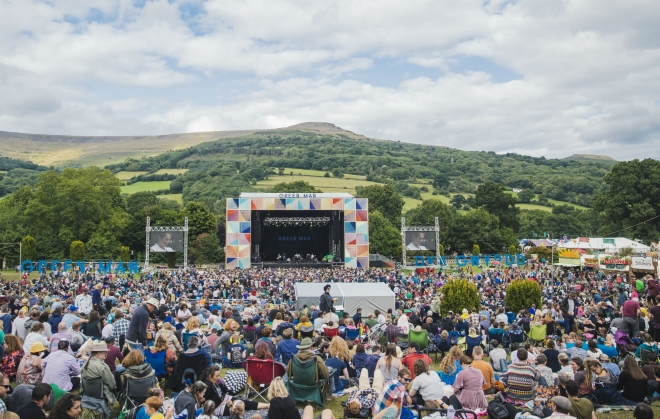
In your later years at Radio One you got involved with several festivals. Tell us about Green Man and Festival No.6 and others which push the envelope for recognition of not only Welsh Music but new music in general.
The unexpected outcome of hosting a radio show for Radio One was getting asked to DJ, host and curate festival stages, and this has been both an incredible joy and a terrifying challenge for me at the same time.
Seeing Green Man grow from the early days is something really quite remarkable, from 300 people in 2003 to over 20,000 less than two decades later. The place itself creates an atmosphere, and there’s a connection the organisers have made us feel through the music – a uniqueness of vision! It’s great to see so many other events grow around Wales. It’s a spectacular country with unspoilt locations, and these events are both great for the local economies, and also inspire local culture.
The CEG Woodcutters stage at Festival No. 6 is a great example. I’ve been to festivals all around the world but Festival No. 6 – which was based at at Portmeirion, an Italian style village at the heart of Snowdownia – was one of the best music sites I’ve ever been to, even though it was blighted by bad weather in the end. Grace Jones came out on stage and said Wales was reminding her of Jamaica with its lush greenness! Amazing!
My favourite DJ memory ever, was at an All Tomorrow’s Parties event in Australia curated by Nick Cave in a deserted skiing village during the summer. I was DJ-ing with a close friend in the village square which filled with punters, flooding down the mountain from the main stage, and we carried on playing till the early hours – the location creating the most memorable image in my mind ever! I’d love to see more events like this take over Wales’ peaks and valleys!!!
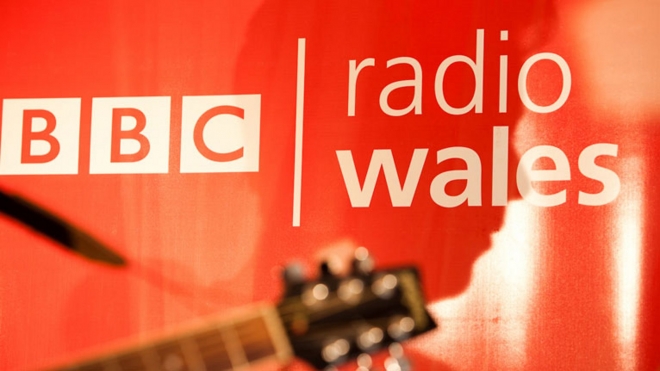
Your relationship with Radio 1 came to an end in 2011. How did that affect you and how did you see the future at that junction?
Yes, after 11 years at Radio 1, I had already started presenting the new music show I still do now with BBC Radio Wales. The Session in Wales first morphed into BBC Introducing in Wales and then moved on, and I feel there’s still a hole in the national schedule. Huw Stephens still champions music from Wales – and from all corners of the UK – but it’s harder than ever for DIY artists to get some national attention for their music. The pathways are not always clear. BBC Introducing helps of course, but artists need to be warned not to depend too much on the ‘chance’ opportunities – and to keep getting their music sent out as far & wide as possible.
How did leaving Radio 1 affect me personally? It was a huge part of my life, and I had to learn how to move on with all the same passions, but without that influential platform. Being on Radio 1 opened so many doors for me, personally and professionally – and so many challenges came knocking. But we take with us the things we learn from those huge opportunities. Companies don’t define us. Brands always borrow from our skills, talents, thoughts, and hard work – and we in turn can utilise and pass on a wealth of knowledge from them.

Did the Horizons project emerge from the ashes here as a concept or was the genesis evolved elsewhere?
The concept of Horizons came from seeing the BBC “Sound Of” lists announce the latest new artists every year across the whole of the BBC – and I thought It might be an idea to announce a shortlist of people to look out for in Wales – a window on Welsh music. That was the basic concept.
It’s since become a much bigger offering – with showcase platforms, festival stages, a growing social media platform, field trips, live streams, talent partnerships and much more. We spend the whole week sharing news about the Welsh music scene and highlighting opportunities that are available. It’s important that those opportunities are made known to all walks of life around Wales.
Now as a stateswoman of the Welsh AND British music scenes, who have you seen emerge in the last six months who excites you as much as the early days?
Music is good for us, live music is life, festivals are community, artists are talent – where would we be without any of this? I’m always enjoying coming across something new. I concentrate my time on new welsh music but I’ve also enjoyed listening to the Mercury Music Prize list in the past few weeks, the Moses Boyd album is incredible. I’m enjoying Phoebe Bridgers, Anna Meredith, Laura Marling, Ane Brun, Nadine Shah and many more.
In Wales the talent is phenomenal: the female artists alone will knock you sideways. Panic Shack, Adwaith, I See Rivers, Teddy Hunter, Ani Glass, Ailsa Tully, Hannah Willwood, Rona Mac, Juice Menace, Kelly Lee Owens and Accu. The electronic artists I’m enjoying include Novo Amor, Carw, R Seiliog, Don Leisure, Dead Method and Cotton Wolf. There’s a revival in the Welsh folk scene spearheaded by bands like Calan, and No Good Boyo, and the Welsh urban scene is on fire at the moment with Mace, SZWE, Reuel, Aleighcia Scott, Afrocluster and Magugu. Even the bands scene has unstoppable artists coming through Rosehip Teahouse, Kidsmoke, Buzzard, Boy Azooga, Al Moses, Private World, Holding Absence and so many more.
Click the link below to find my playlists of the above on Spotify if you want to hear new Welsh talent:
Fresh On The Net pushes loads of new artists from around the world. If you could advise them on three things, what would they be?
Three things? Erm…
1) BE FEARLESS: you are the creative force, enjoy your stories, lyrics, music creation, and talents.
2) DO RESEARCH: read about the music industry, read about labels, read about publishing and prs, read about radio, about social media – the how to’s are all online. This is a tall order but learn about the industry from top to bottom – mixing, producing, technology, photography & editing. You’ll need all these skills, and at least understand them and have control over them. Learn business.
3) DO NETWORKS: find your community, support your community, support each other – be DIY, put on nights, streams, gigs, be pro-active, and you’ll meet people that build your network too. Music champions who pass on word of mouth are all around us, so the more proactive you are with a venue, festival, magazine, photography, promotions, the more you’ll be part of something. When done naturally, these things above make an artist seem engaged, proactive, alert to the situation, the opportunities, and noticing the work going on all around them to get shows organised. Also: a ‘thank you’ goes a long long way!
What’s the next project for you in this much changed landscape?
I want to look at seeing if there’s something I can do to support Wales’ fragmented communities. Music can transform people and communities. This should be part of the new landscape.
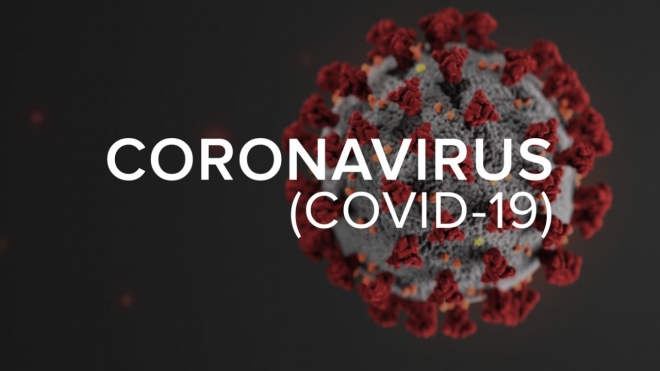
Realistically when do you see the scene picking up again post-pandemic and what new form will events take so that smaller acts can generate income?
I don’t think it will be too long – bars are open, DJs will be first, and performances are started to get announced for early next year. I’m already finding myself in busy places, cafes, parks, beaches, and considering that, surely live events have got to be back soon! Even churches want to be able to meet together to sing, so its affecting every corner of our society.
My hope is we’ll appreciate music and live events more, and there will be a natural groundswell of support for homegrown events and promoters when it all kicks off again. Its shown itself to be so vital to our wellbeing in lockdown, and I thank all the artists who streamed to entertain us – It was a wonderful connecting experience. We need to move forward with everything we’ve learned – the local and global perspective, technology and real side by side.
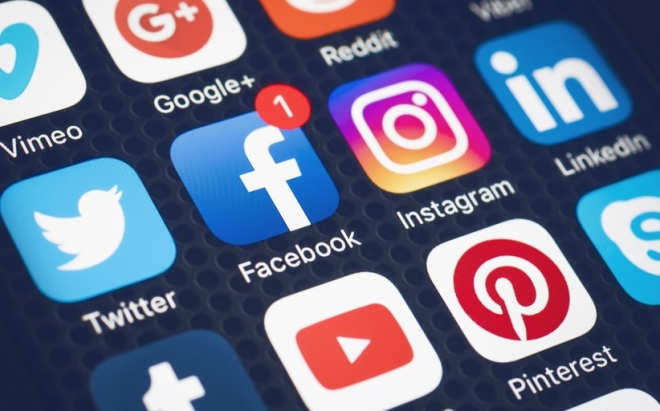
Finally what’s the best way for musicians and others to contact you?
People are welcome to message me and contact me via any of the following
BBC Radio Wales | Twitter | Instagram | Facebook | LinkedIn
They can also find the Gorwelion/Horizons project here:
Twitter | Website

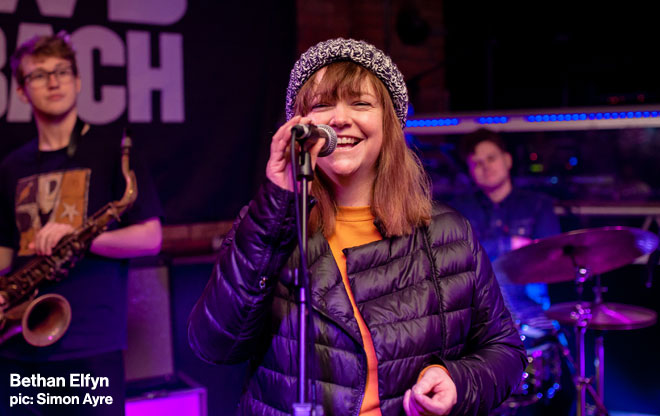

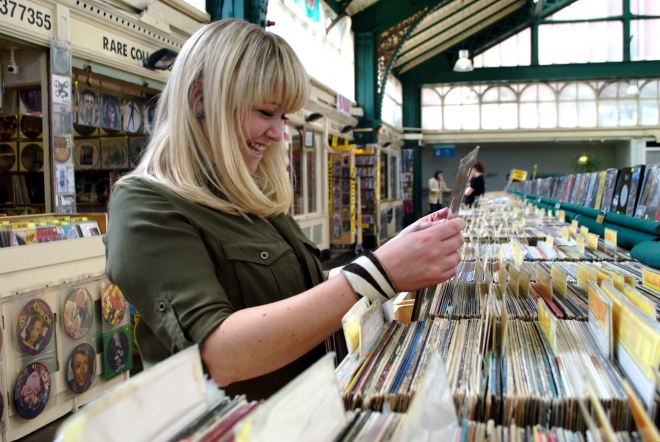






Cheers to Bethan for her valuable time and cheers to Tom Robinson for sharing.